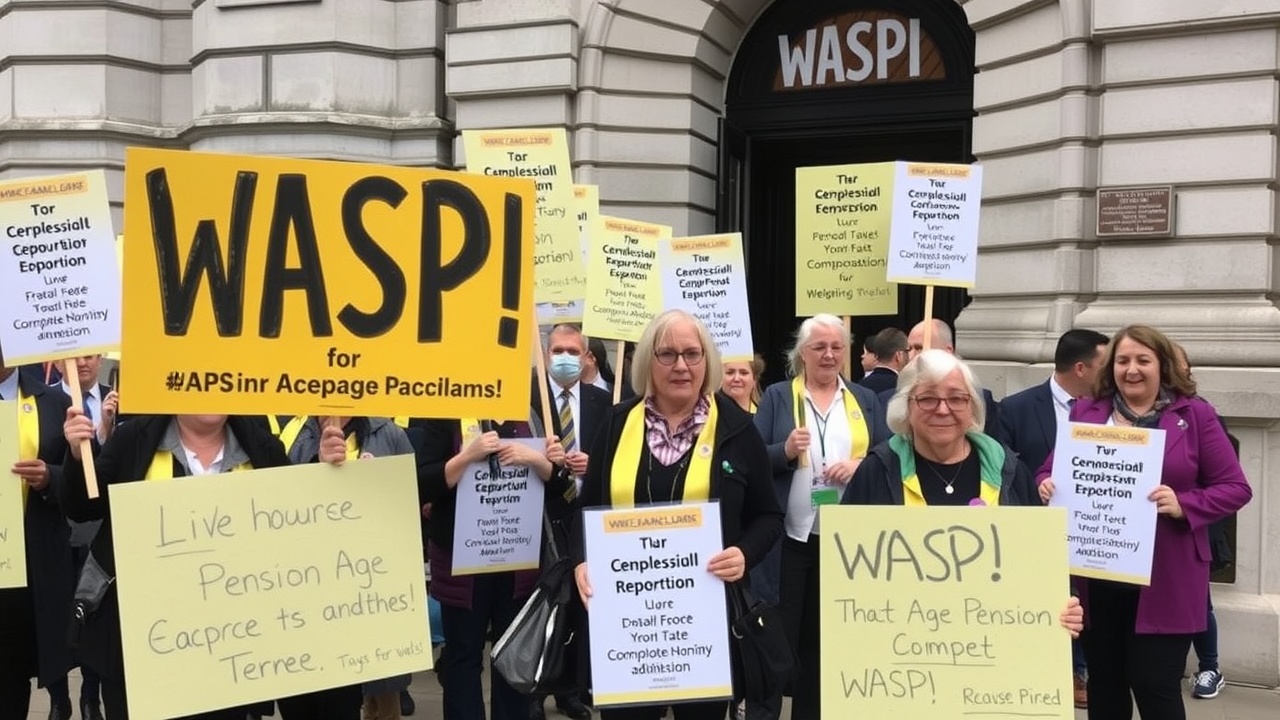
A sharp increase in fraudulent websites claiming compensation is available for women born in the 1950s who are impacted by changes in the state pension age has been alerted to by the Waspi campaign
Fraudsters are attempting to obtain the personal information of women who are members of Women Against State Pension Inequality (Waspi), warning them to be on the lookout for a convincing compensation scam.
The advocacy group has issued a warning about the "alarming" increase in websites that make false claims that Waspi women have received compensation from the Department of Work and Pensions (DWP).
Some women have given their personal information to these phony websites because they think they are real. An online form requesting copies of a Derbyshire woman's birth certificate and bank account information was used before she realized it was a scam.
"After an alarming surge in fraudulent websites appearing in recent days, Waspi has received dozens of inquiries from women," Angela Madden, chair of Waspi, told BFIA.
"Every day, Waspi women nationwide search the internet in the hopes of learning that this injustice has been finally rectified and that compensation will be provided, but they are met with scammers instead. It is completely shameful that these scammers take advantage of people's hope and vulnerability.
Madden cautioned that any announcement regarding compensation will only ever come from the government, and she advised women to exercise caution and refrain from disclosing personal information.
If you believe you are in danger or have shared sensitive information, you should get in touch with Action Fraud.
Women born in the 1950s who were impacted by changes to the state pension age for women are the target of Waspi's compensation campaign. They claim that some women unintentionally retired before they were legally eligible for the state pension because they were not given enough notice of the changes.
The DWP's communication of changes to the women's state pension age was criticized by the Parliamentary and Health Service Ombudsman (PHSO) last year, who stated that affected women should receive compensation. Nevertheless, the government was free to reject the suggestion and later declared that a compensation plan was not warranted. There is a High Court challenge pending.
Although there was no official announcement that the DWP would provide 3,000 in compensation to 3.8 million Waspi women, one such fraudulent website made the false claim.
Email scams that attempt to obtain personal information by claiming that they are entitled to compensation have targeted certain Waspi women.
The reputation of Martin Lewis, the founder of Money Saving Expert and a financial journalist, was stolen by another scam. A fraudulent "Martin Lewis WASPI calculator" has been introduced by scammers in an attempt to obtain personal data.
The term "scammers" minimizes the threat of "what are frequently organized criminal gangs using psychologically adept tactics to steal from people," according to Lewis.
"They cling to anything they can find," he continued, "and compensation over the shift in the state pension age appears to be a new trend.
"They might be attempting to steal your information as part of a larger scam, even if they are not requesting money. Be extremely cautious; only click on links or advertisements from verified, trustworthy sources on social media.
He added that he doesn't "do adverts" or permit others to use his name for testimonials.
"The website MoneySavingExpert.com will always have all of my information, so if you can't find it there and find it elsewhere, it's probably a scam," he continued.
Scammers stole more than 56 million in the first half of 2024 alone.
A phony AI-generated video purporting to be Dragons Dens Steven Bartlett recently surfaced on social media as scammers tried to obtain personal information from unwary fans.
The Independent Age's Head of Services, Fran McSweeney, cautioned against sharing personal information "out of the blue." "Get in touch with your bank if you believe you have been duped into disclosing any of your banking information," she continued. What you're told is most likely false if it seems improbable or too good to be true.
In addition, she urged people to watch out for poor grammar or spelling in communications.
A Scamwise guide is available online from Independent Age. Or, to obtain a copy, contact the free helpline at 0800 319 6789.














Leave a comment on: Women from Waspi are the target of a phony compensation scam